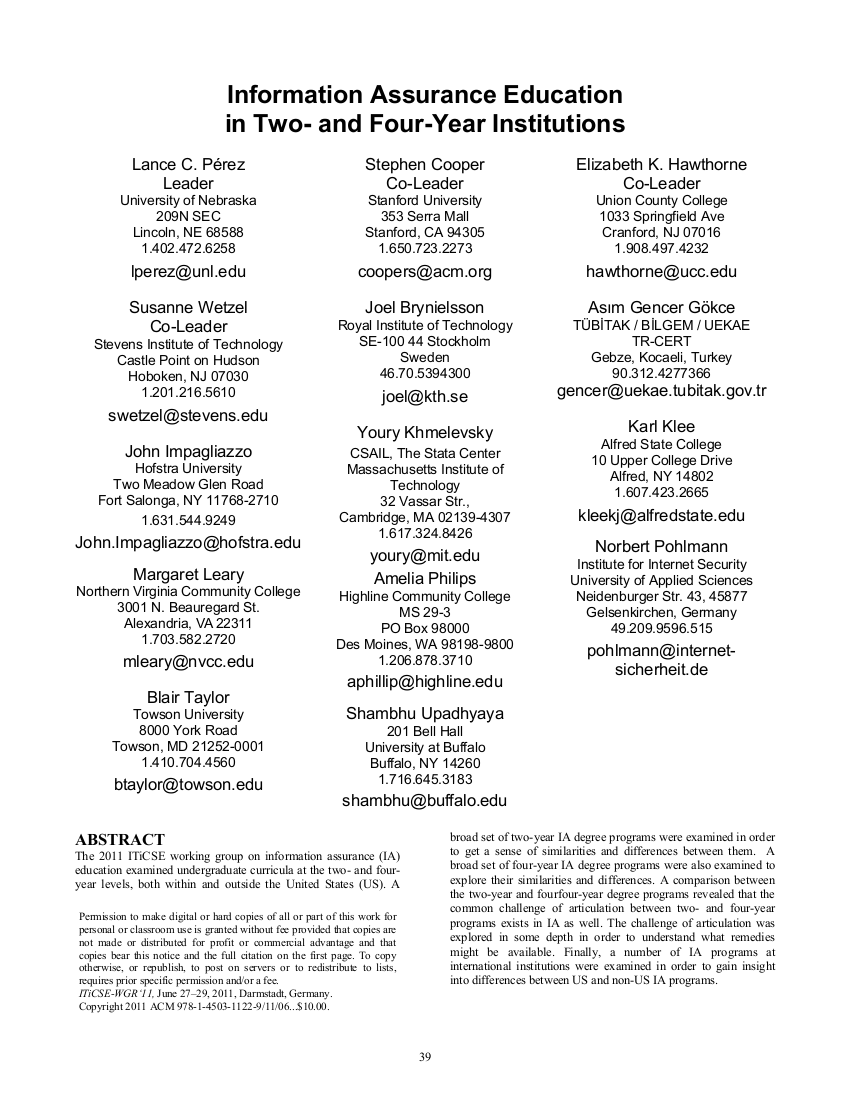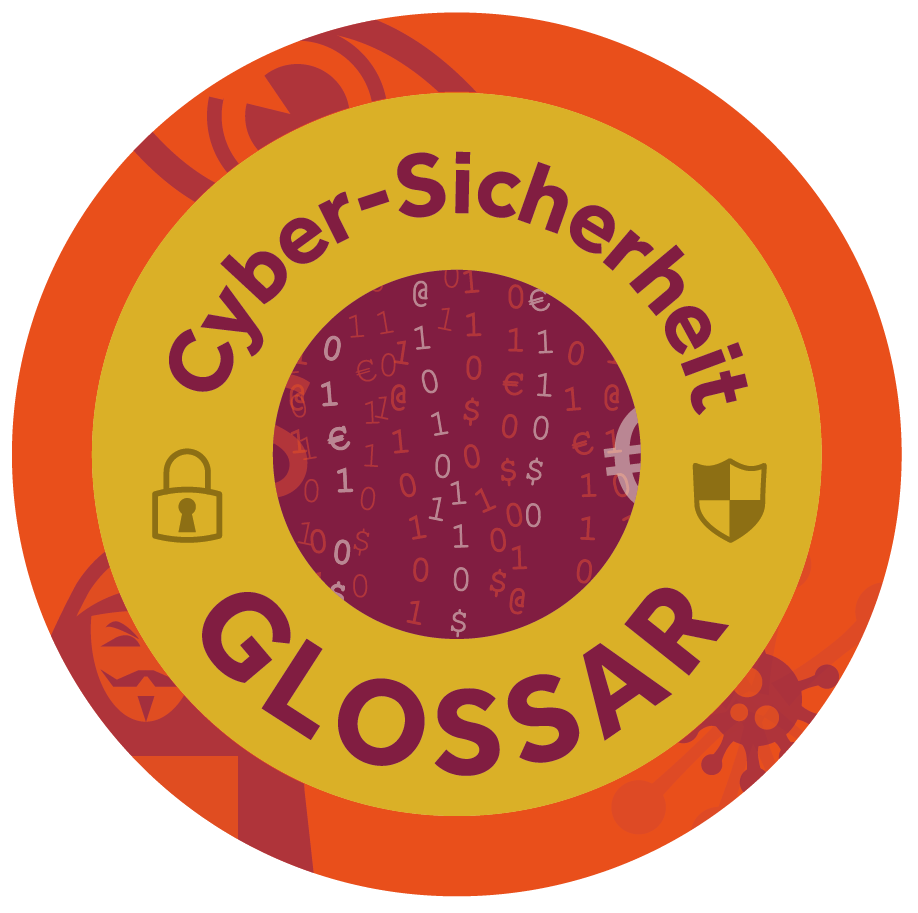L. Pérez, S. Cooper, E. Hawthorne, S. Wetzel, J. Brynielsson, A. Gökce, J. Impagliazzo, Y. Khmelevsky, K. Klee, M. Leary, A. Philips, N. Pohlmann, B. Taylor, S. Upadhyaya:
“Information Assurance Education in Two- and Four-Year Institutions”,
Proceedings of the 16th annual conference reports on Innovation and technology in computer science education – working group reports,
ACM New York,
NY, USA
2011 The 2011 ITiCSE working group on information assurance (IA) education examined undergraduate curricula at the two- and fouryear levels, both within and outside the United States (US). A broad set of two-year IA degree programs were examined in order to get a sense of similarities and differences between them. A broad set of four-year IA degree programs were also examined to explore their similarities and differences. A comparison between the two-year and fourfour-year degree programs revealed that the common challenge of articulation between two- and four-year programs exists in IA as well. The challenge of articulation was explored in some depth in order to understand what remedies might be available. Finally, a number of IA programs at international institutions were examined in order to gain insight into differences between US and non-US IA programs. Permission to make digital or hard copies of all or part of this work for personal or classroom use is granted without fee provided that copies are not made or distributed for profit or commercial advantage and that copies bear this notice and the full citation on the first page. To copy otherwise, or republish, to post on servers or to redistribute to lists,
requires prior specific permission and/or a fee.
A lack of consensus of what constitutes information assurance (IA) education has led to IA degree programs with widely varying curricula. The US National Security Agency (NSA) and the US Department of Homeland Security (DHS) jointly sponsor the National Centers of Academic Excellence (CAE) in IA program [1]. An academic institution’s resulting designation provides some evidence of the coverage of that institution’s IA program. There are three different CAE program designations: - CAE-Research (CAE-R) [2] for research institutions,
primarily a measure of the college’s research output in
IA. - CAE/Information Assurance Education (CAE/IAE) [3]
which measures four-year US institutions according to
the following criteria: Outreach/Collaboration, the
extent to which IA is treated as a multidisciplinary
science, the extent to which the institution encourages
the practice of IA, the extent that the academic program
encourages student research in IA, the extent of faculty
activity in current IA practice and research, IA
Resources, robustness of the IA academic program,
existence of a declared center for IA education, and the
number of IA faculty and their course load. - CAE two-year (CAE2Y), which measures two-year
institutions with similar criteria to four-year institutions
without a research expectation, and with the expectation
that faculty members will have appropriate industry
certifications.
The NSA/DHS CAE program is only open to US institutions. A
key component of the application process is the mapping of an
existing curriculum to a series of training standards (the CNSS
401X standards [4]). It should be noted that the CAE standards are
currently in the process of being updated.
This working group has examined the programs of several twoand four-year institutions with respect to IA education. This paper
defines and describes the distinct and complementary missions of
two and four-year institutions with respect to IA education,
describes the differences and similarities of the educational
programs at two- and four-year institutions and at US and non-US
institutions, and documents some of the challenges and
opportunities for articulation between two- and four-year IA
degree programs. This working group’s mission is motivated by
the increasing role community colleges have been playing in IA
education, and builds on the work of the 2009 and 2010 ITiCSE
IA working groups.
…
kostenlos downloaden | 




